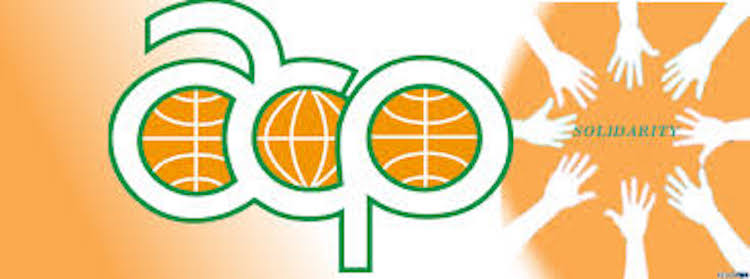
By Reinhard Jacobsen
BRUSSELS (ACP-IDN) – The Sustainable Development Goals (SDGs) of the 2030 Agenda for Sustainable Development adopted by world leaders in September 2015 at an historic UN Summit opens a new era for a repositioned African, Caribbean and Pacific Group (ACP Group) to continue and deepen its decisive role in supporting all 79 member states “to achieve the 17 SDGs as the basis for the Sustainable Development of their societies and our only home we have for humanity”.
The basis and raison d’étre of the ACP is development and this implies “ending poverty in all its forms everywhere” (SDG 1). The unity and solidarity on which the ACP is founded provides a unifying force in adopting measures to end poverty, says a policy paper.
While universal in ambition and intention, there are specific demands, interests and stages of development of the 79 member states of the ACP. Their organisation into Regional Economic Communities (RECs) and Regional Integration Organisations (RIOs) also warrant attention by development activities and through political dialogue and advocacy from the national to regional, continental and global levels.
“At each level, actions taken by programmes or projects and policy debates are grounded in the principle that poverty eradication can only be achieved by structural transformation of ACP countries’ economies,” says the paper.
This entails how the productive resources of society are organised (in regard to the agriculture sector and food security – SDG 2) with the benefit of investment capital to move up commodity or mineral value chains enabling income and jobs to be created in sectors that historically relied mainly on exports of primary products. In this way, the productive sectors are oriented to generate income for individuals and the State so that social services are improved.
As a corollary, healthy lives (SDG 3) are necessary for productivity in the economy and this requires inclusive and equitable quality education that promotes life-long learning opportunities (SDG 4). These activities are related to economic growth, full employment and decent jobs (SDG 8) from which better social services can be provided. But in these and related activities a cross-cutting theme has to be “gender equality” (SDG 5).
To address specific SDGs it is helpful to align those on the social aspects of sustainable development, as for instance, SDG 2 on ending hunger, achieving food security and improved nutrition, with SDG 3 to ensure healthy lives and promote well-being for all at all ages.
None of this economic transformation can take place without the attention to the heavy investment in affordable, reliable, sustainable and modern energy (SDG 7) that relies on a resilient infrastructure to promote sustainable industrialisation in the driving force has to be innovation (SDG 9).
In the wider context of the political structure and governance institutions there is concern about inequality among and between countries (SDG 10) as well as reducing the drift from rural areas to the cities with the enormous degradation of cities (SDG 11) and the underlying macro-level need for peaceful and inclusive societies providing “access to justice” (SDG 16).
The above-mentioned interdependence of social and productive sectors needs to be situated in what should not be treated narrowly as “environmental” concerns but rather underpin the overarching framework “to combat climate change and its impacts” (SDG 13).
The fulfilment depends on the endorsement and on-going implementation of the 2015 Paris Agreement by the Conference of Parties (COP 21). To this must be added sustainably use oceans and seas and terrestrial ecosystems (SDG 14 and SDG 15).
“The inter-related aspects of the SDGs are the important framework in which the ACP approaches its repositioned engagement at the global level. In this regard, a limited number of specific SDGs constitute concentrated efforts, but linkages are made to ensure complementarity and a cumulative impact of programme interventions,” the policy paper adds.
The thematic areas being addressed include Climate Change, in which a Global Climate Change Alliance II of Euro 70 million is being programmed and implementation will mainly be undertaken through the African Union and RECs/RIOs. A major aspect of this engagement is to support the implementation of the Paris Agreement.
Related to Climate Change will be the group’s continuing work on Oceans and Seas in which a broad spectrum of activities are on-going on such issues as Illegal, Unregulated and Unreported (IUU) fishing, marine pollution but also advancing fisheries management so that productive resources of coastal communities can be mobilised for jobs and decent work.
Gender equality must receive the full and systematic support it deserves in its own right as SDG 5 but mainstreamed across all programmes in which the ACP is involved. Significant will be a new EU-UNU-ACP Spotlight Initiative on gender equality with an initial allocation of Euro 350 million from the 11th European Development Fund (EDF).
Agenda 2030 conveys Planet, Peace, Prosperity and Partnership as ambitious goals of the SDGs. This requires a new understanding and strengthening of institutions of the State.
Hence the promotion of peaceful and inclusive societies serves as the central nucleus from which ACP’s activities enable access to justice, transparency and accountability in all institutions – global, continental, regional and national – through capacity-building in which human resource capacities and appropriate organisational structures enable the structural transformation of societies.
This is indispensable for sustainable development to be realised. Herein lies the comparative advantage and value-addition of the ACP Group of States with 43 years of practice in South-South and Triangular Cooperation. [IDN-InDepthNews – 31 July 2018]
Image credit: ACP
This report is part of a joint project of the Secretariat of the ACP Group of States and IDN, flagship agency of the International Press Syndicate.
facebook.com/IDN.GoingDeeper – twitter.com/acp_idn











